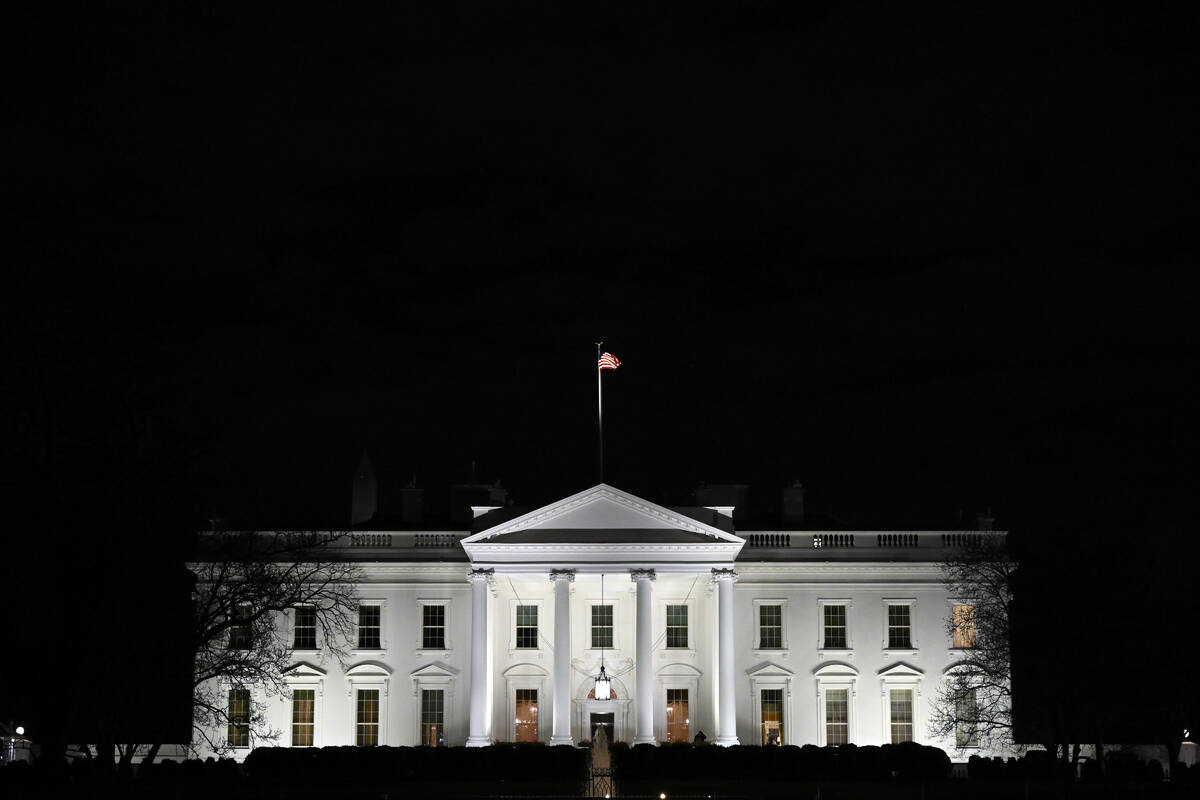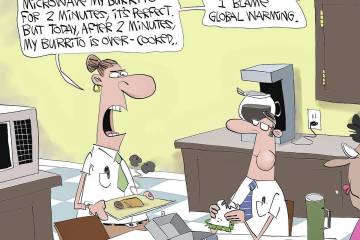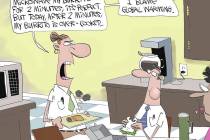COMMENTARY: Nevadans deserve honest accounting of spending plan
Democrats’ ambitious policy proposals are making their way through the complicated reconciliation process, but the rhetoric over the numbers and the economic effects of the package need a dose of reality.
The package passed out of the House Ways and Means Committee won’t pay for $3.5 trillion in new spending, will break the promise of not increasing taxes on Nevadans making under $400,000 and will hurt the state and national economies.
Lawmakers could improve the situation in three ways.
First, they should be honest with Nevadans about the cost. The tax increases approved so far add up to about $2 trillion over a decade, short of fully paying for $3.5 trillion in new spending. Some lawmakers anticipate they could raise an additional $700 billion from “health care savings,” but even then would still be billions short of fully paying for their plan.
Perhaps worse, President Joe Biden has claimed that a fully paid for plan would have no cost. Those writing the bill need to provide an honest accounting of how much they will raise in taxes and how much they expect to borrow to fully pay for the plan.
Second, lawmakers need to ditch the talking point and acknowledge that their proposals for $2 trillion of new taxes will create a burden for Nevadans earning below $400,000.
For example, nearly $100 billion of the $2 trillion in tax increases comes from a proposal to increase taxes on certain tobacco products and nicotine. The vast majority of smokers have lower incomes, and tobacco is one of the few goods where consumption increases as income decreases. Today, at a national level, a pack-a-day-smoker making $15,000 a year pays almost 10 percent of his or her income in tobacco taxes. The proposed increase takes that figure to 12 percent, clearly a violation of the pledge not to increase taxes on people making under $400,000.
Similarly, the proposal to increase corporate income taxes would directly and indirectly burden workers making under $400,000. Directly, the burden falls on people who own shares in corporations, which many Nevadans do through their retirement accounts. Indirectly, over time, the burden of corporate taxes falls on workers in the form of lower wages as lower investment slows productivity growth and wage growth.
Rather than make unworkable promises, lawmakers should make the case for why they think their new spending is worth the cost of higher taxes.
And therein lies the biggest issue. An honest accounting becomes difficult when the types of tax increases lawmakers have proposed are among the most harmful for economic growth. Thus, the third improvement would be for lawmakers to replace their harmful proposals with tax increases that are less damaging, such as broad-based consumption taxes and user fees, so the benefits of new spending are not offset by the harms of new tax increases.
At the Tax Foundation, we estimated that the Build Back Better Act as proposed by the House Ways and Means Committee would reduce the size of the economy by nearly 1 percent in the long run — in today’s dollars that amounts to about $332 billion of lost output every single year, largely driven by higher corporate taxes that reduce private-sector incentives to invest.
Further, we estimate the plan would eliminate 303,000 full-time equivalent jobs in the United States and reduce after-tax incomes for the top 80 percent of taxpayers over the long run.
That is especially problematic as states such as Nevada are entering a period of economic recovery with hopes of renewed investment and opportunities after being hard-hit by the pandemic-induced downturn.
Infrastructure is important. But financing new spending with economically damaging tax increases — and hand-waving away the cost and effects of those tax increases — is not how to build back better.
— Erica York is an economist with the Tax Foundation, a nonpartisan think tank in Washington, D.C.




























